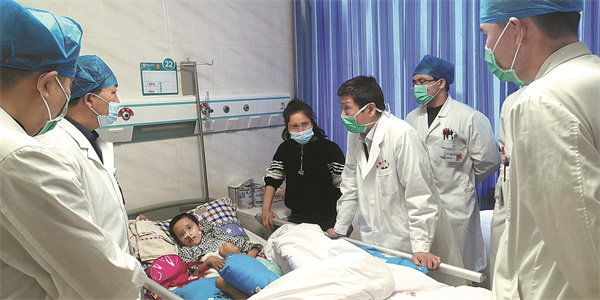

In 1983, Sun graduated from Capital Medical University with a bachelor's degree in pediatrics. He then worked as a resident physician for three years before deciding to specialize in pediatric urology at Beijing Children's Hospital. Since then, he has performed tens of thousands of intricate and intimate operations.
According to Sun, unlike most surgical operations to remove tumors or organs from the patients, which are destructive, hypospadias repair is reconstructive.
Sun says there are around 300 surgical methods for hypospadias, yet not one sole method can solve all the problems, so the doctors need to keep learning.
As well as studying the latest research and essays, Sun says he also learns from his patients. "You may meet patients who are not satisfied with your treatment. You should learn from them and think how to best solve their problems," he says.
Many of the patients who come to Sun for hypospadias repair have already undergone the surgery, but it has failed, which is more challenging.
Li Kai, 39, a doctor at the pediatric urology department in Xinjiang Children's Hospital, has been working with Sun since last February.
"It's like a dress that has already been cut. Sun then has to remake the dress accordingly," Li explains, adding that, as far as he is concerned, Sun turns the delicate hypospadias repair procedure into an art form.
Li often observes Sun when he performs complicated surgeries. "A lot of knowledge is not written in textbooks, as it is based on experience, and Sun teaches us thoroughly," Li says.
Each day Sun arrives half an hour before the regular ward round starts to check on his patients. "All he cares about is providing the best treatment for the children," Li says.